Summary
- Summon powerful creatures with spells like Conjure Elemental or Summon Greater Demon to enhance combat action economy.
- Use spells like Flaming Sphere to deal consistent damage and control the battlefield.
- Spells like Magic Jar and Soul Cage provide unique strategic advantages, such as possession and soul trapping.
Casting spells can be one of the most fun things to do in any Dungeons & Dragons campaign. Whether you’re a crafty wizard or a wise druid, there are plenty of super-powerful spells you can use to your advantage. If you know how to use your abilities right, you can even turn the tide of combat.
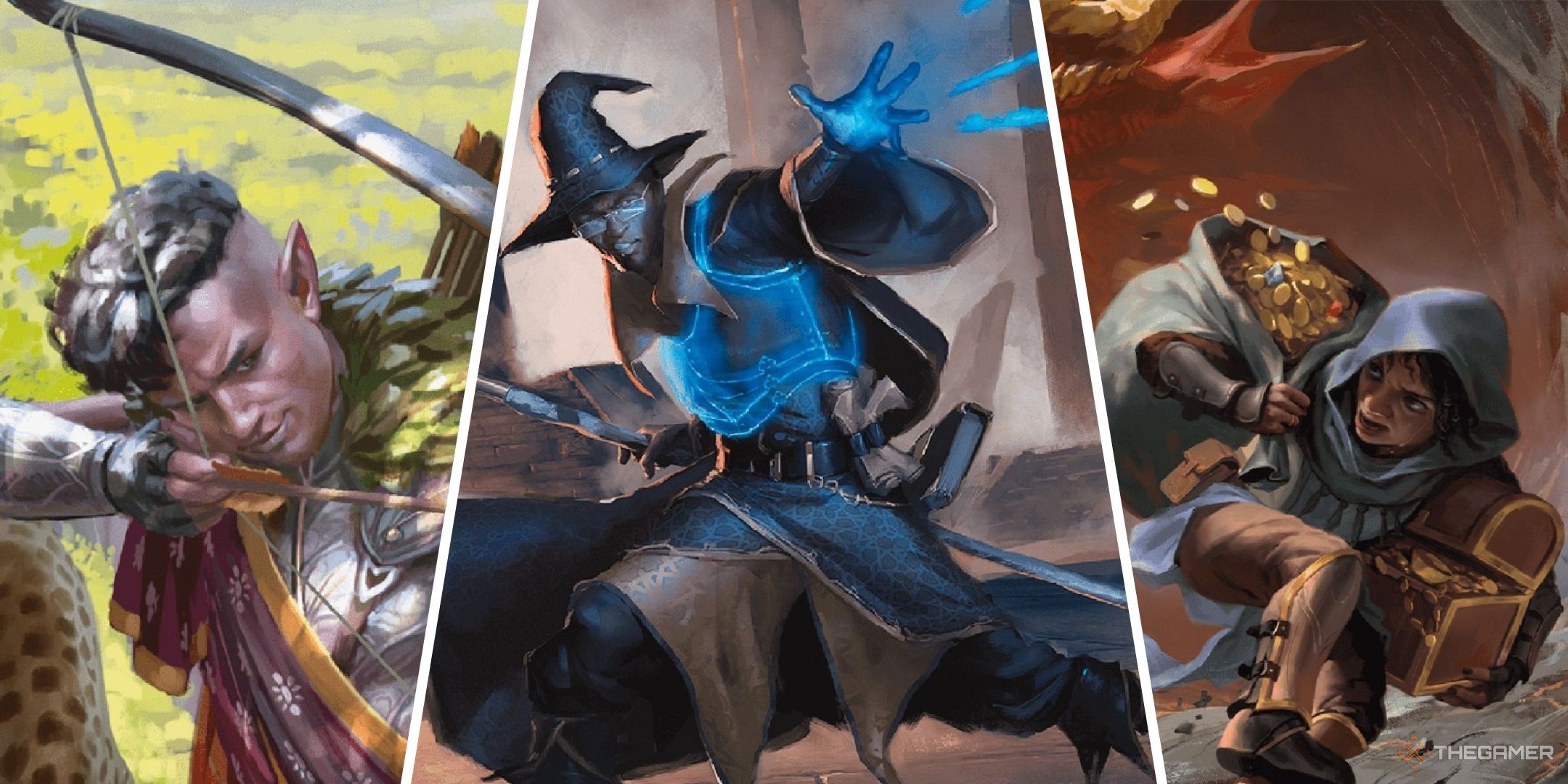
Related
Dungeons & Dragons: The Most Useful First-Level Spells, Ranked
There are a lot of different classes in Dungeons & Dragons that use magic, while there are many spells, these are the best first level ones.
And even outside of combat, casting the right spell can get you out of tricky roleplay situations. But, which spells are the best to truly break your DM’s mind? For this list, we’re looking at a variety of sourcebooks for the most impactful, powerful spells out there. Here are ten completely broken D&D spells.
10
Conjure Elemental
|
Spell Level |
Classes |
Components |
|
5th-level conjuration |
Druid, Wizard |
Verbal, Somatic, Material (varies depending on element) |
Summoning spells are often extremely underrated. Conjuring elementals can really increase action economy for druids. By casting this spell at fifth level, you can conjure an elemental with a challenge rating of five or below.
This means, for example, you can summon a fire elemental. Summoning a fire elemental not only gives you more turns in combat, but using a fire elemental to set enemies on fire means you can ignite adversaries. This forces combatants to take 1d10 fire damage for each round they’re still ignited. Stacking this effect can really boost your party’s chances.
9
Summon Greater Demon
|
Spell Level |
Classes |
Components |
|
4th-level conjuration |
Warlock, Wizard |
Verbal, Somatic, Material (a vial of blood) |
This is another summoning spell that is not to be overlooked. Summon Greater Demon allows you to summon a demon that is loyal to you at challenge rating five or below. Though the demon gets to save each turn to try to break free of your will, if you know the demon’s name, you can give it disadvantage, keeping it on your side.
The brokenness of this spell also comes from action economy. If you summon a Barlgura, for example, you can get three extra attacks by using this creature’s stat block. For wizards or other casters who prefer to stay in the backline, this can be incredibly helpful.
8
Flaming Sphere
|
Spell Level |
Classes |
Components |
|
2nd-level conjuration |
Druid, Sorcerer, Wizard |
Verbal, Somatic, Material (tallow, brimstone, and iron) |
Though just a second-level spell, this elemental spell packs a mighty punch. When you cast this spell, you conjure a flaming sphere of fire five feet in diameter that lasts for one minute. This is, of course, providing you maintain concentration.
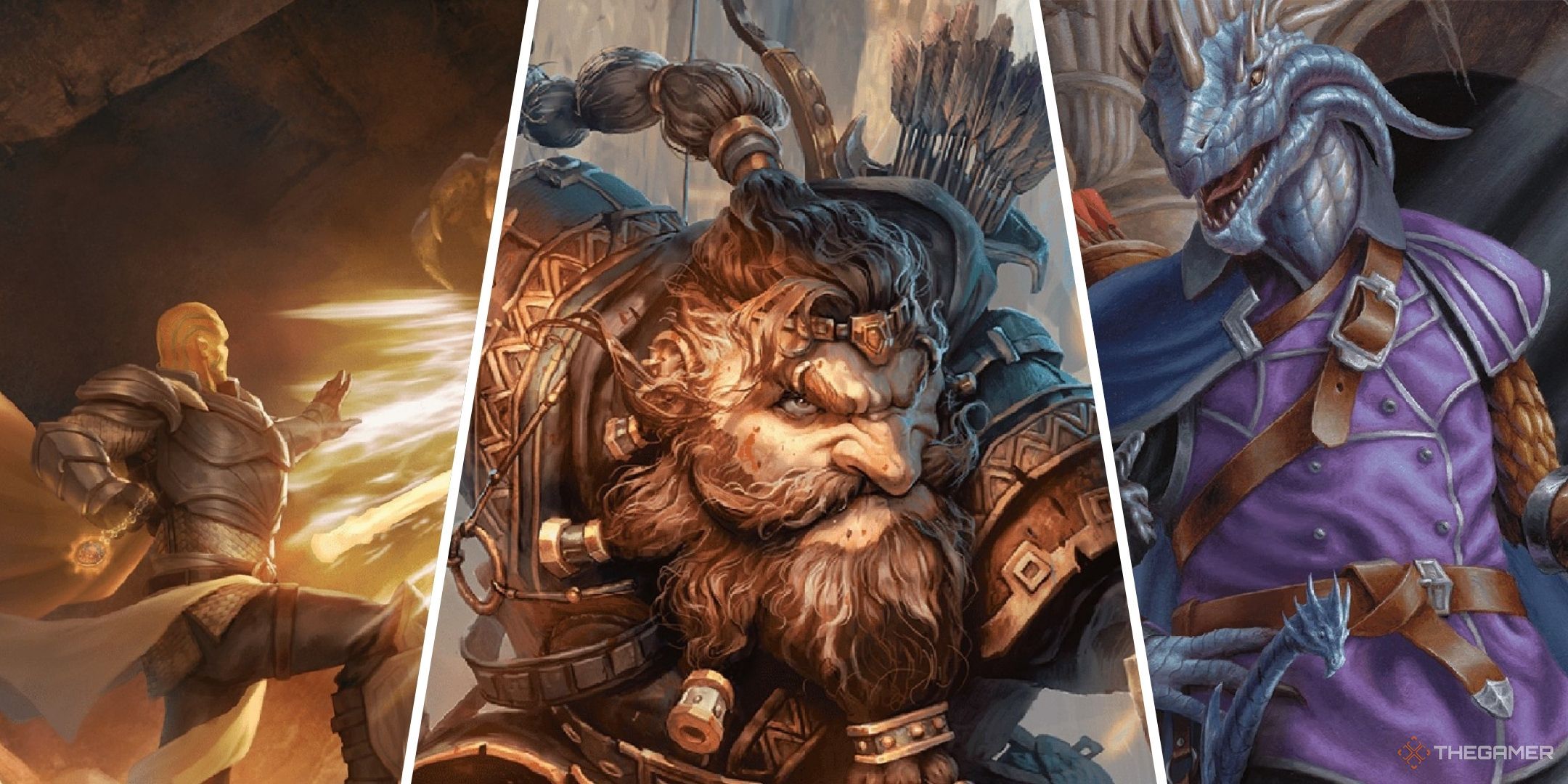
Related
Dungeons & Dragons: 21 Best Battle Master Maneuvers, Ranked
Battle Master Maneuvers are critical in Dungeons & Dragons, and here’s a ranking of the best to defeat your DM with.
What’s great about this spell is that if you maintain concentration, you can move it as a bonus action. This means that even while you’re taking other actions during combat, you can use your bonus action to ignite the battlefield and do additional damage to enemies all without spending another spell slot.
7
Wither And Bloom
|
Spell Level |
Classes |
Components |
|
2nd-level necromancy |
Druid, Sorcerer, Wizard |
Verbal, Somatic, Material (a withered vine) |
This is one of those rare spells that wizards and sorcerers can take to give them some ability to heal during battle. When you cast Wither & Bloom, a 10-foot sphere appears at a point within 60 feet of you. In this sphere (which can, in theory, pick off enemies above you), each creature you choose takes 2d6 necrotic damage on a failed save and half as much on a successful one.
The real brokenness of this spell lies in the fact that you can also heal an ally within this sphere at the same time! As you cast at higher levels, this spell can really prove impactful. Each level up from second you cast this spell allow you to increase damage and healing.
6
Magic Jar
|
Spell Level |
Classes |
Components |
|
6th-level necromancy |
Wizard |
Verbal, Somatic, Material (a gem or crystal worth 500 gp) |
Magic Jar is more just fun than anything else. But, that doesn’t mean you can’t get creative with it to really fry your DM’s brain. The only downside to this spell is it’s pretty high level and only available to wizards. Magic Jar allows you to remove your soul from your body and enter a jar. In the jar, you are aware of your surroundings. As an action, you can then end the spell and return to your body, or you can enter the body of another being.
If they fail their Charisma saving throw, you can possess their body and gain their stat block. There’s a lot of potential for creative problem-solving with Magic Jar. If you can cast this right before combat, you can potentially turn the tide of an encounter by possessing your enemy right out of the gate. You can also use the jar to spy on adversaries.
5
Soul Cage
|
Spell Level |
Classes |
Components |
|
6th-level necromancy |
Warlock, Wizard |
Verbal, Somatic, Material (a tiny cage worth 100gp) |
For high-level play, Soul Cage is imperative. As a reaction, when a character or enemy dies, you can capture the soul of the creature in a small cage and exploit the soul for healing, advantage on rolls, or knowledge. However, there’s a particularly broken way you can make use of this spell.
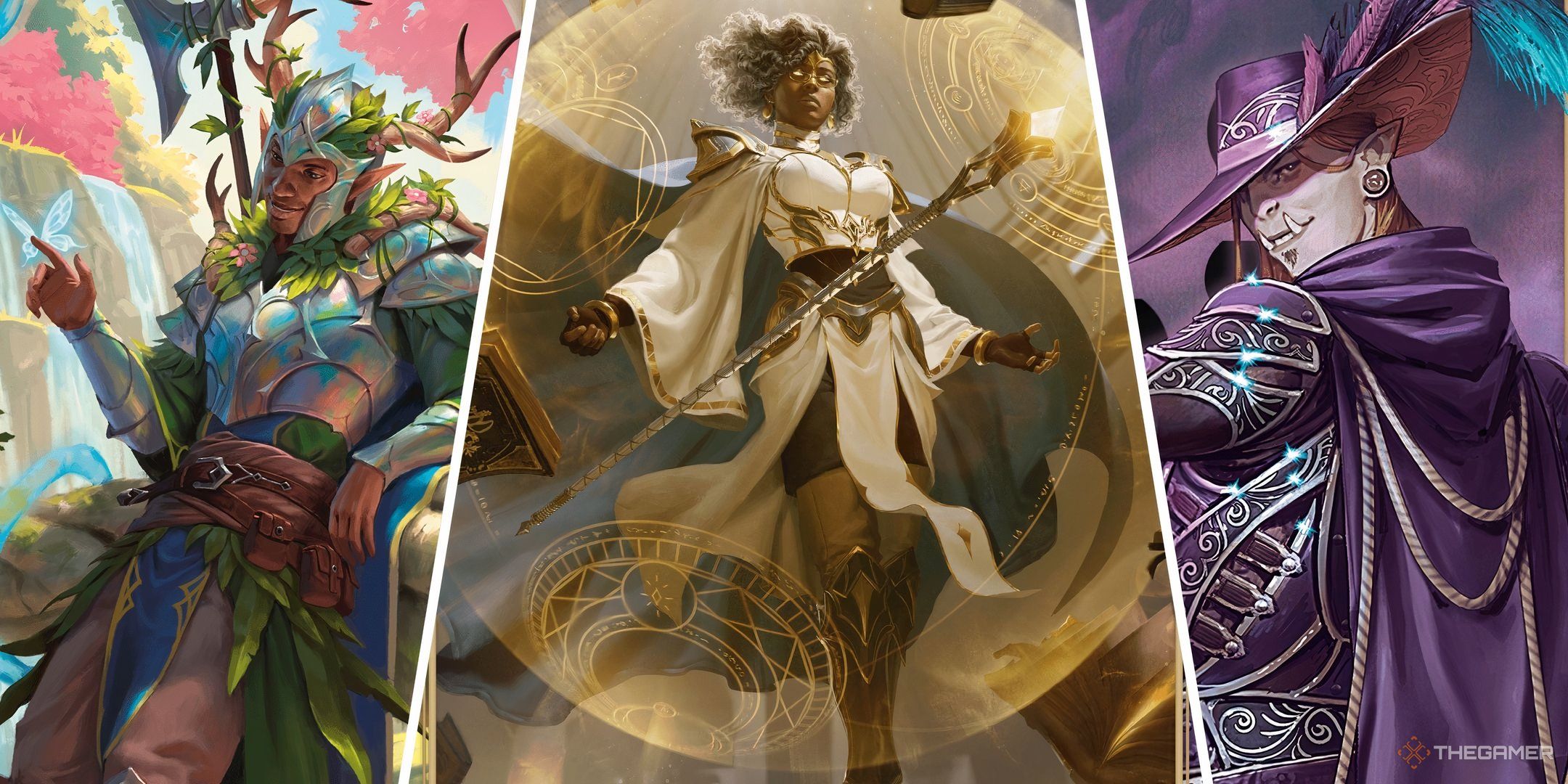
Related
Dungeons & Dragons: 10 Broken Character Builds
Build a character that’ll stand against any battle and drive your DM up the wall with its action abilities and resilience.
If you’re worried an enemy you’re about to kill will be revived by another combatant, use this spell to trap the creature’s soul inside. While inside the cage, the enemy cannot be revived. The duration is eight hours though, so you’ll have to come up with a contingency plan in the interim.
4
Mind Blank
|
Spell Level |
Classes |
Components |
|
8th-level abjuration |
Bard, Wizard |
Verbal, Somatic |
This abjuration spell is particularly helpful if you’re going up against enemies that can charm members of your party. This spell, when cast, makes one creature immune to psychic damage, and prevents effects like mind reading, divination spells, and being charmed. It also lasts for 24 hours, which is nothing to sneeze at.
The most broken element of this spell is the fact that it even works against spells like Wish. The spell’s description also states that similar powers that might affect a target’s mind don’t work. This means you can work with your DM to determine what other effects might not work once this spell is cast.
3
Summon Celestial
|
Spell Level |
Classes |
Components |
|
5th-level conjuration |
Cleric, Paladin |
Verbal, Somatic, Material (a golden reliquary worth 500gp) |
This is another great summoning spell available to divine magic users. For an hour, you can call forth a celestial spirit and choose either the ‘Avenger’ or ‘Defender’ moniker. This grants the celestial you summon different stat blocks to use incombat. To really break this spell, select ‘Defender’ when you cast.
As a Defender Celestial, you can command the celestial to use its Radiant Mace to attack a creature and then either heal itself or another creature within 10 feet. This grants the creature 1d10 temporary hit points. In theory, this can stack endlessly, keeping your friends alive for way longer than they should.
2
Silvery Barbs
|
Spell Level |
Classes |
Components |
|
1st-level enchantment |
Bard, Sorcerer, Wizard |
Verbal |
This first-level spell is the bane of every DM’s existence. As a reaction, you can target a creature within 60 feet of you and force them to reroll an attack roll, an ability check, or a saving throw. Before you cast the spell, you can also wait to see if the creature succeeds first.
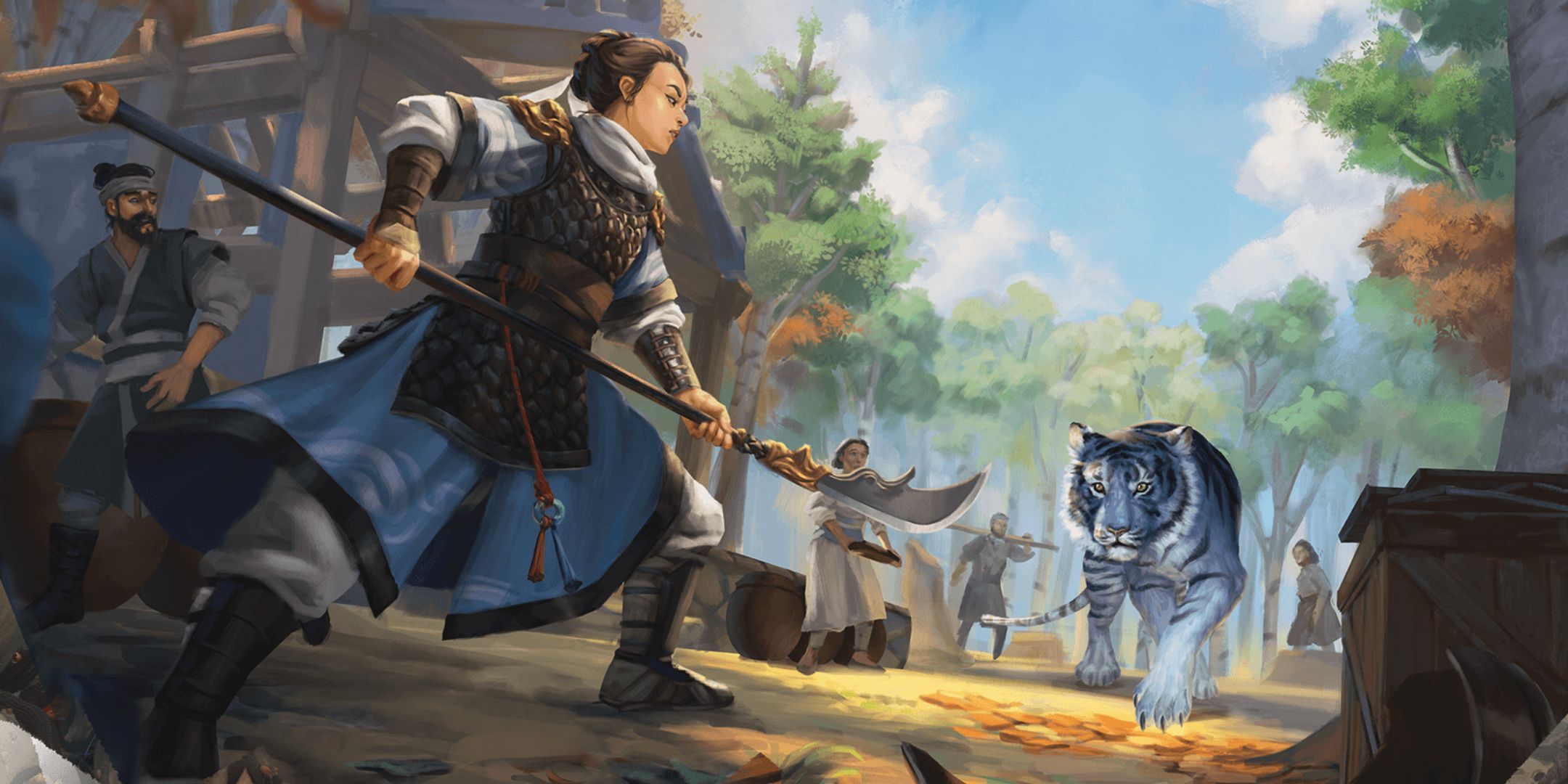
Related
Then, once the spell is cast, you can make them reroll and they are forced to use the lower roll. In addition, you can then grant advantage to another ally to give them a boon in combat. You can even give this to yourself. And, this is all just from one first-level spell that only costs your reaction. You’ll infuriate your DM in no time with this one.
1
Tasha’s Caustic Brew
|
Spell Level |
Classes |
Components |
|
1st-level evocation |
Artificer, Sorcerer, Wizard |
Verbal, Somatic, Material (a bit of rotten food) |
This one is another first-level spell that packs a big punch. When you cast this spell, a line of acid 30 feet long and five feet wide erupts from you. Creatures that are hit must succeed on a Dexterity saving throw or be drenched in acid. Creatures in the acid take 2d4 acid damage at the start of each turn.
What makes this spell so effective is that enemies must use their action to get the acid off of themselves. Otherwise, they cannot nullify the effect. With acid still on them, you’ll be dealing an extra 2d4 damage every turn they waste not removing the acid.
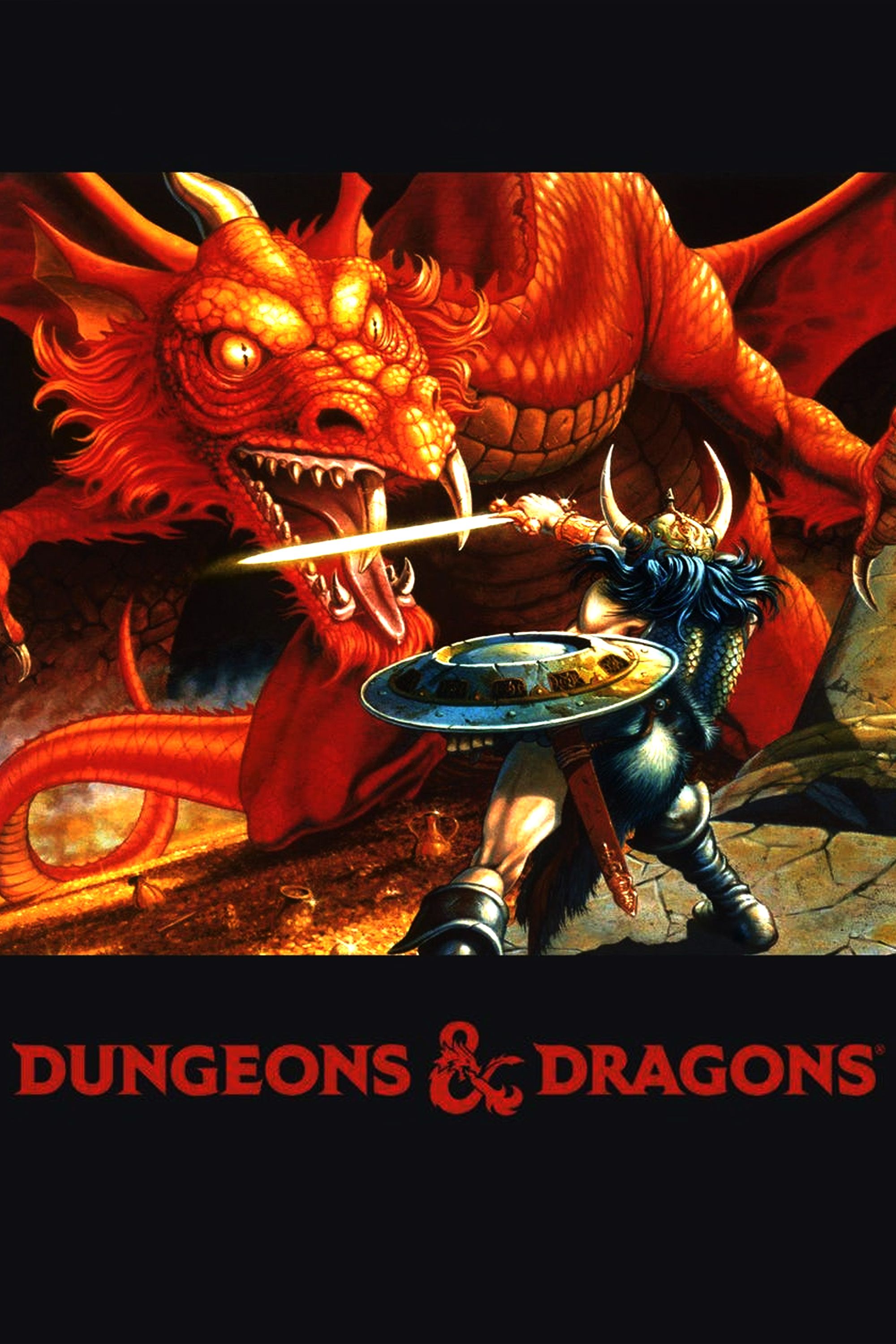
Dungeons and Dragons
- Original Release Date
-
1974-00-00
- Designer
-
E. Gary Gygax
, Dave Arneson - Player Count
-
2+
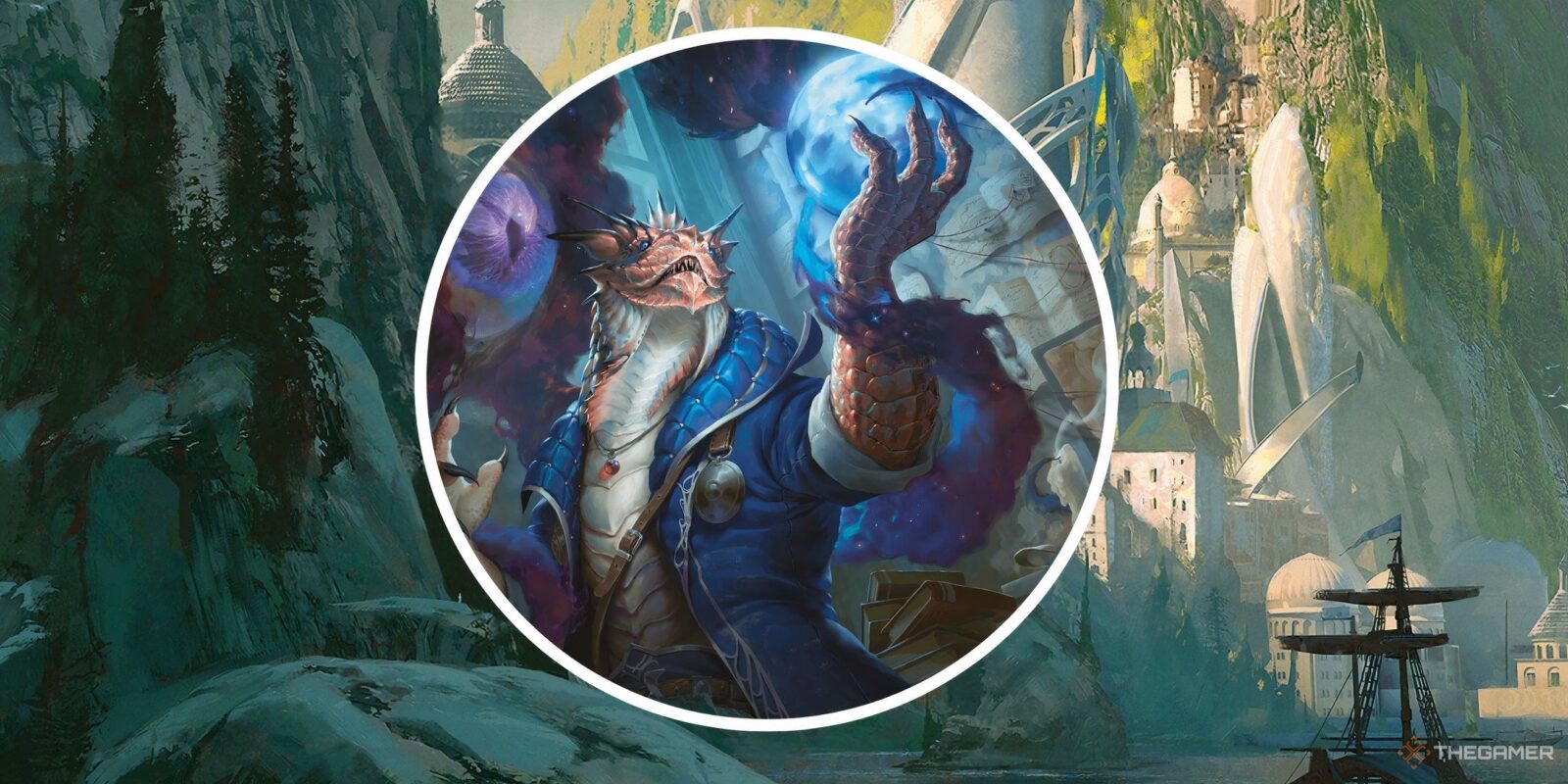

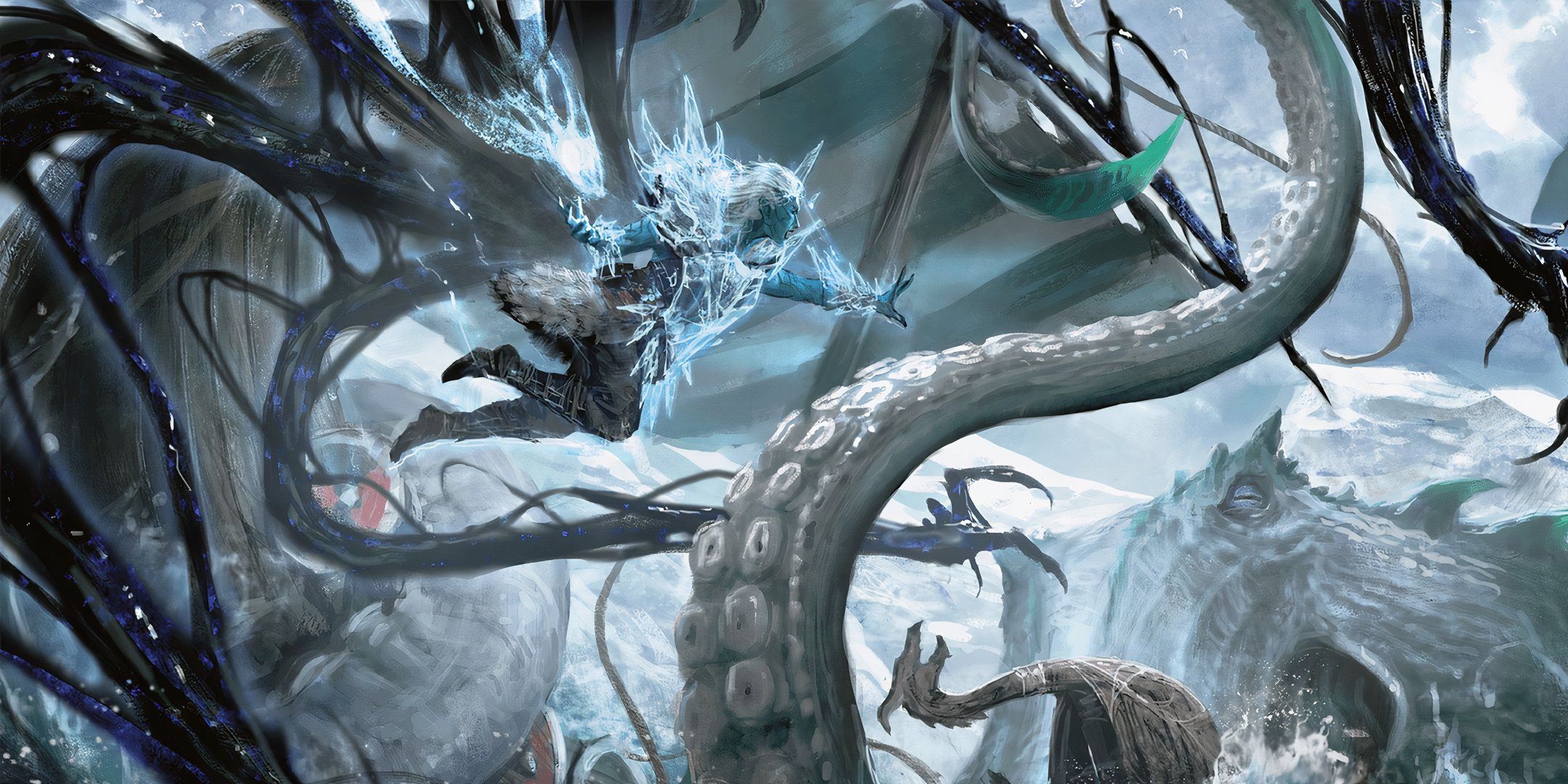
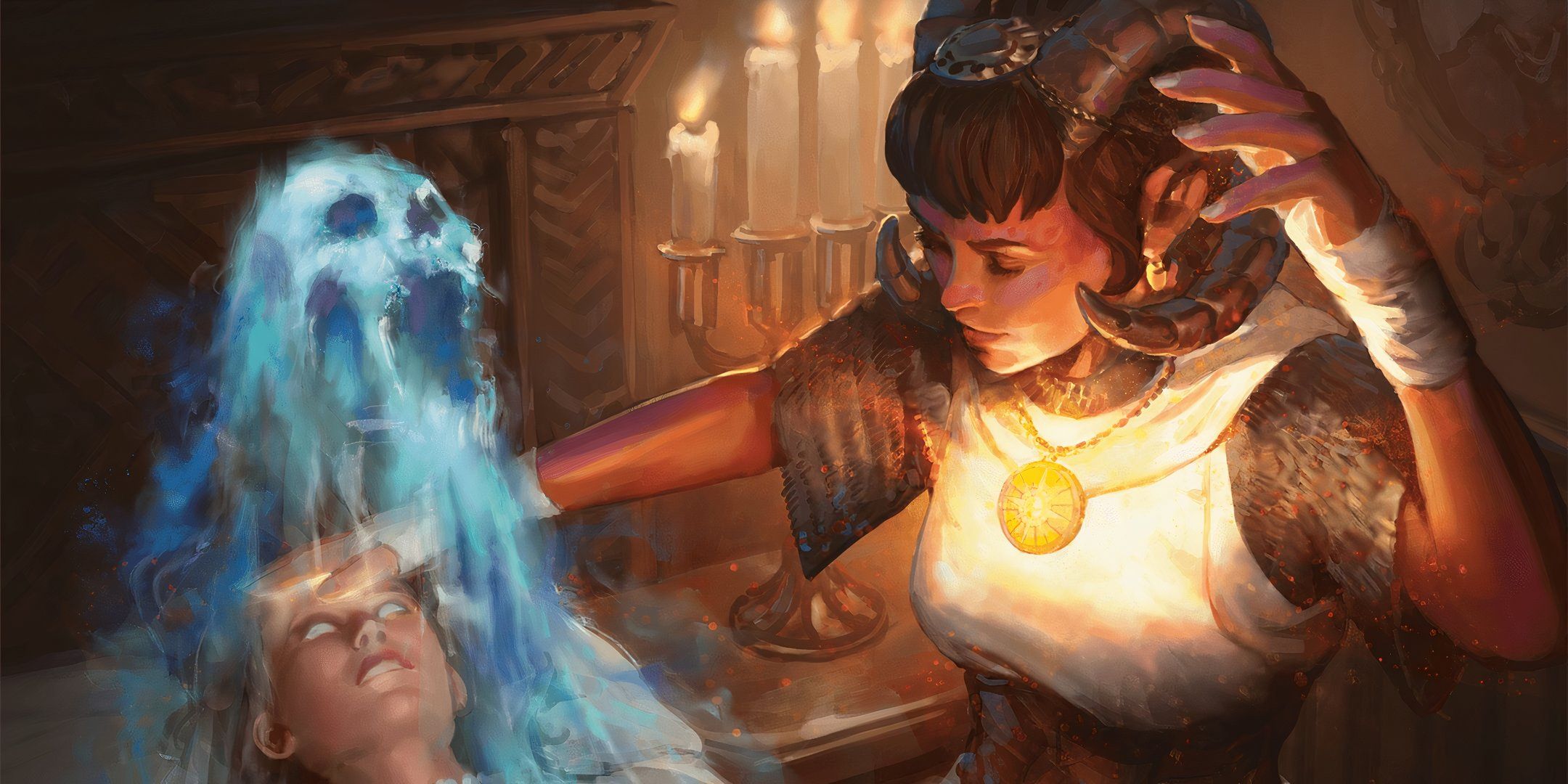
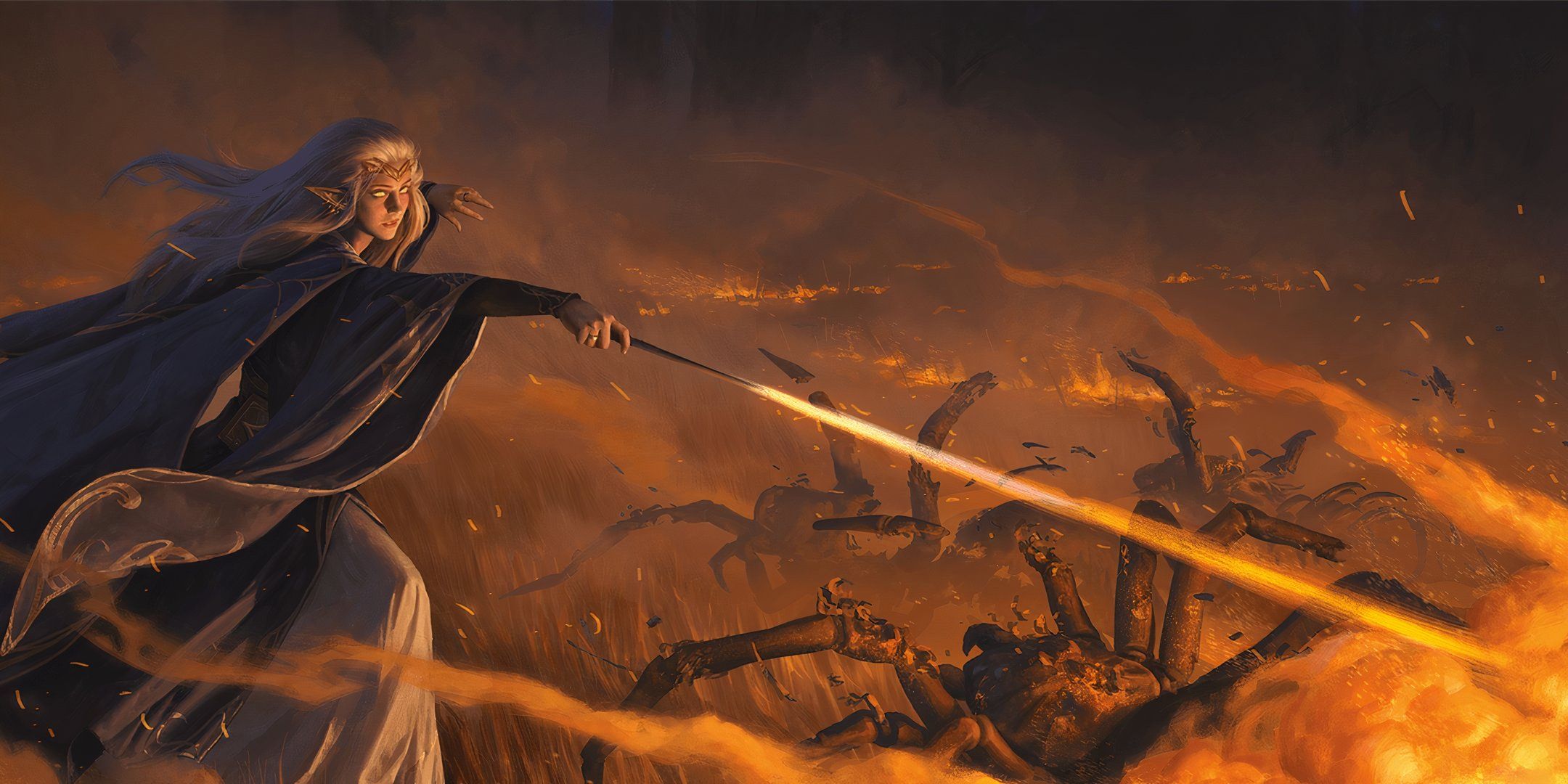
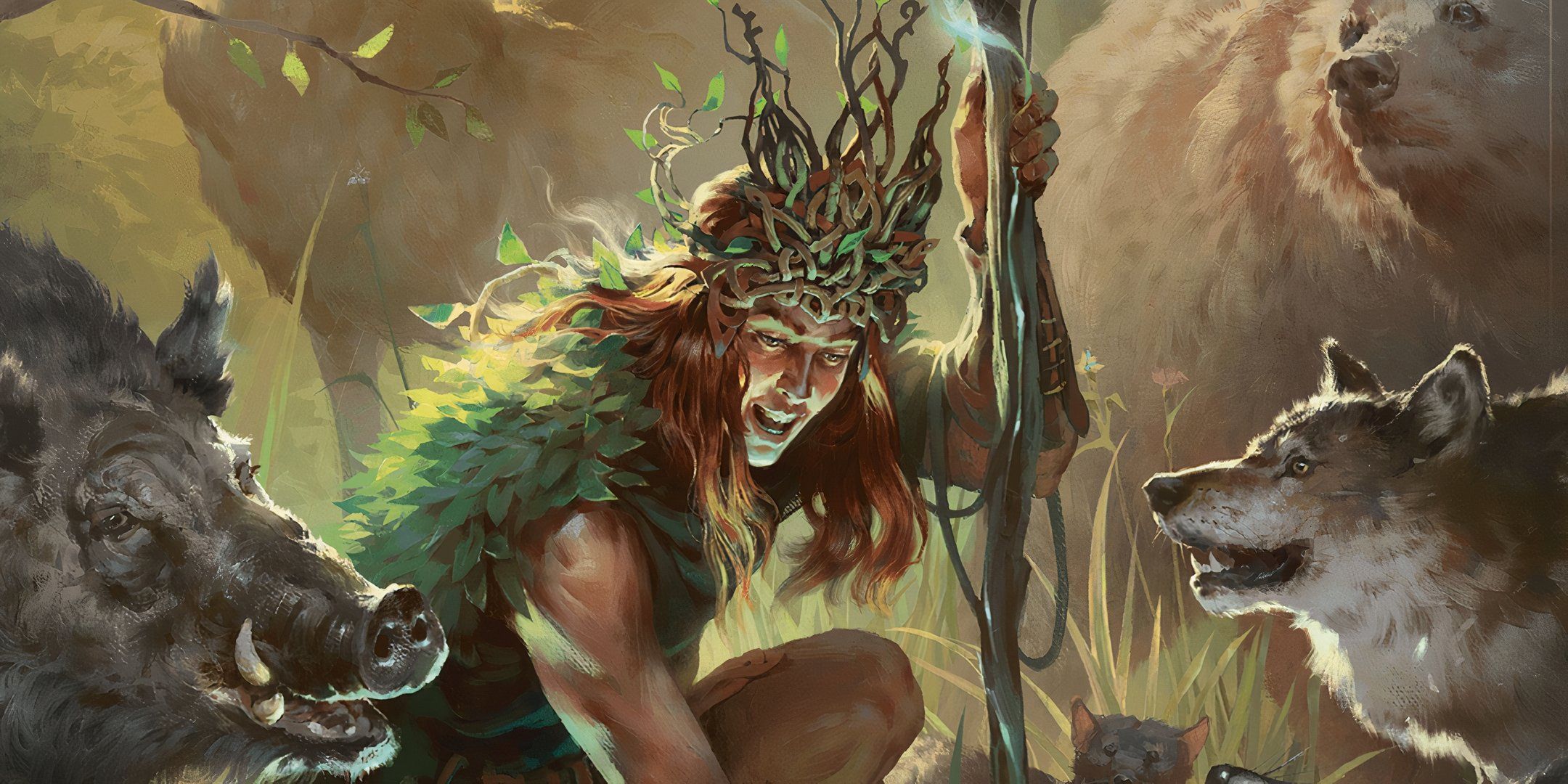
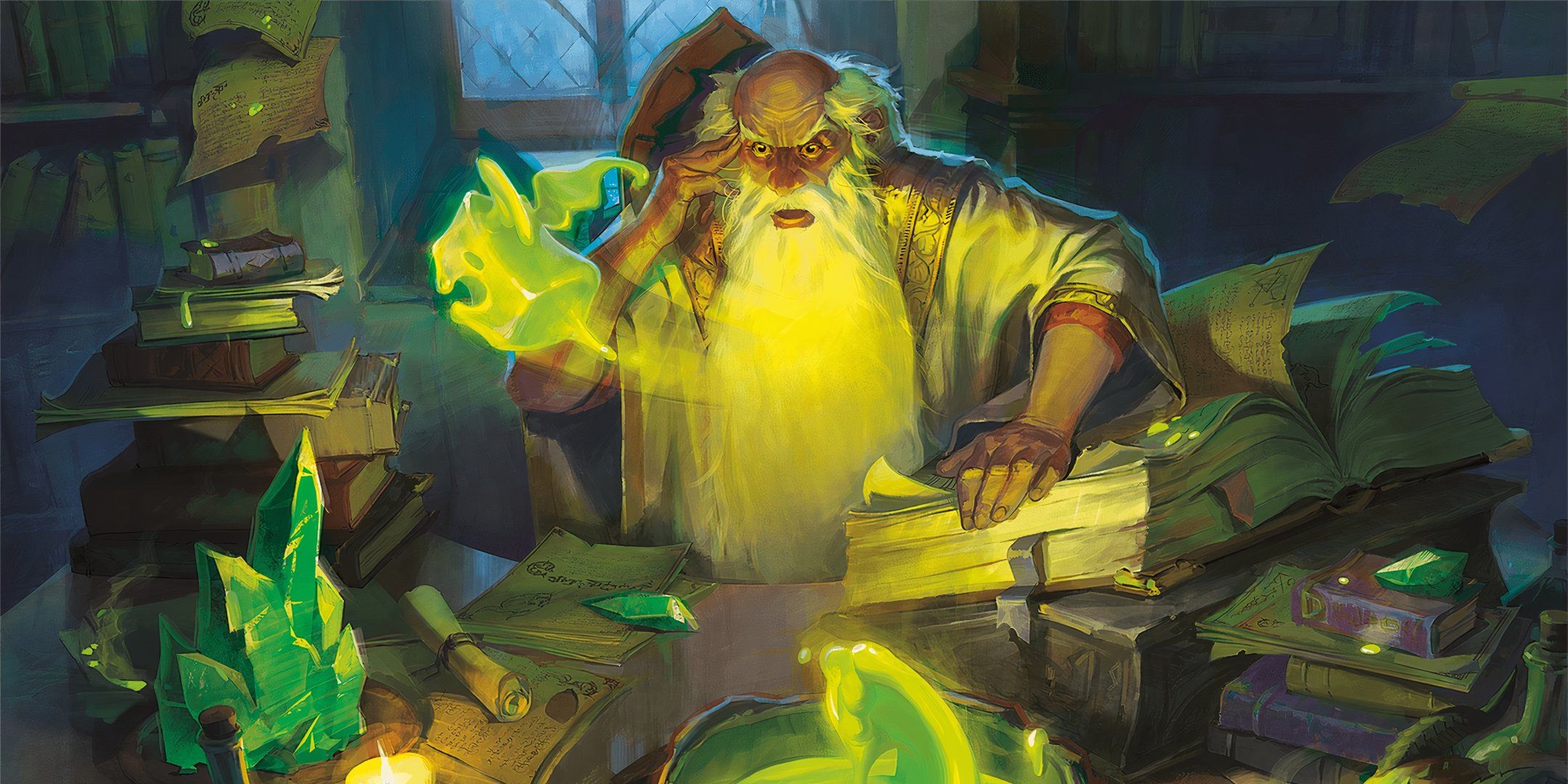
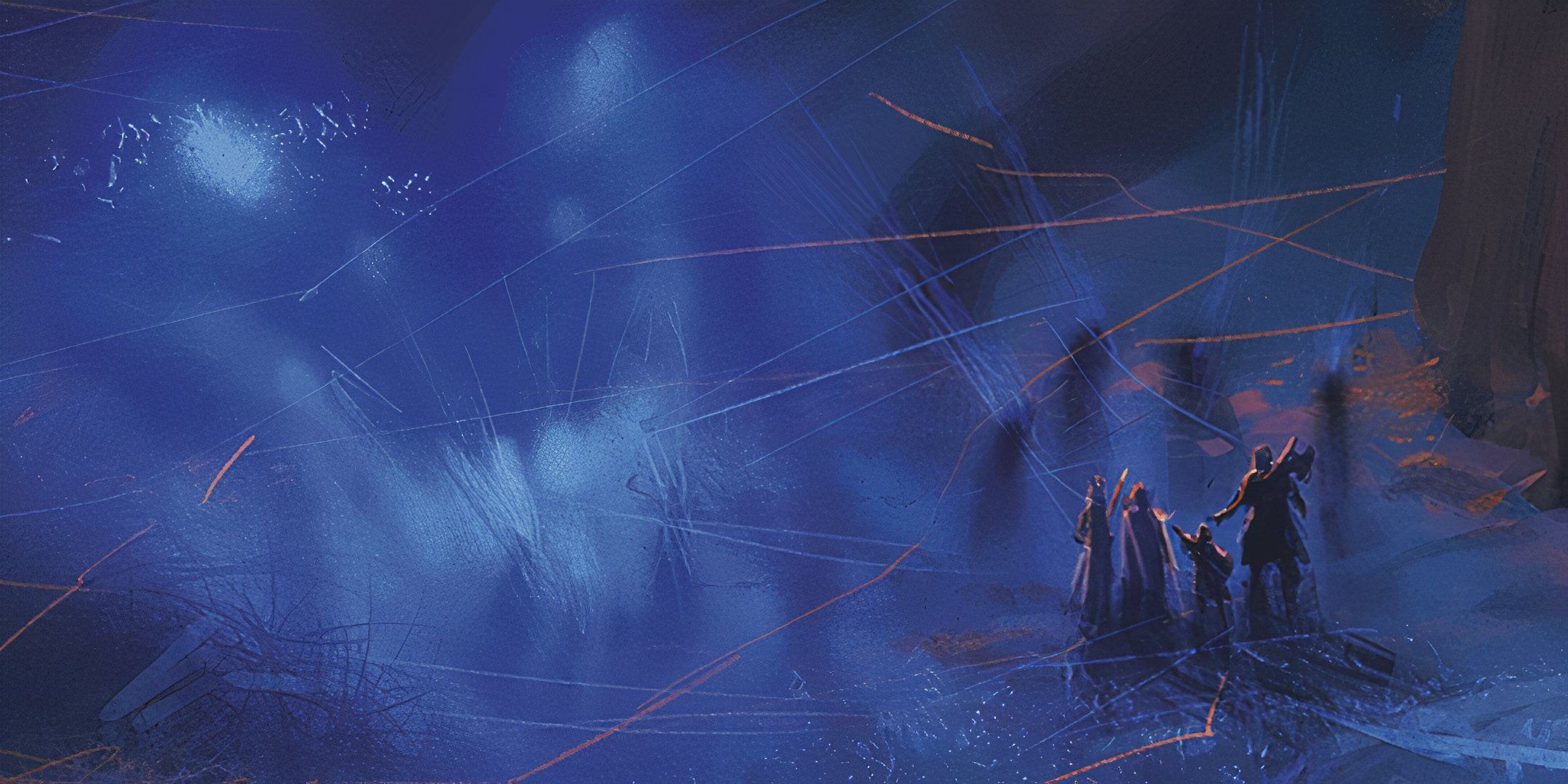
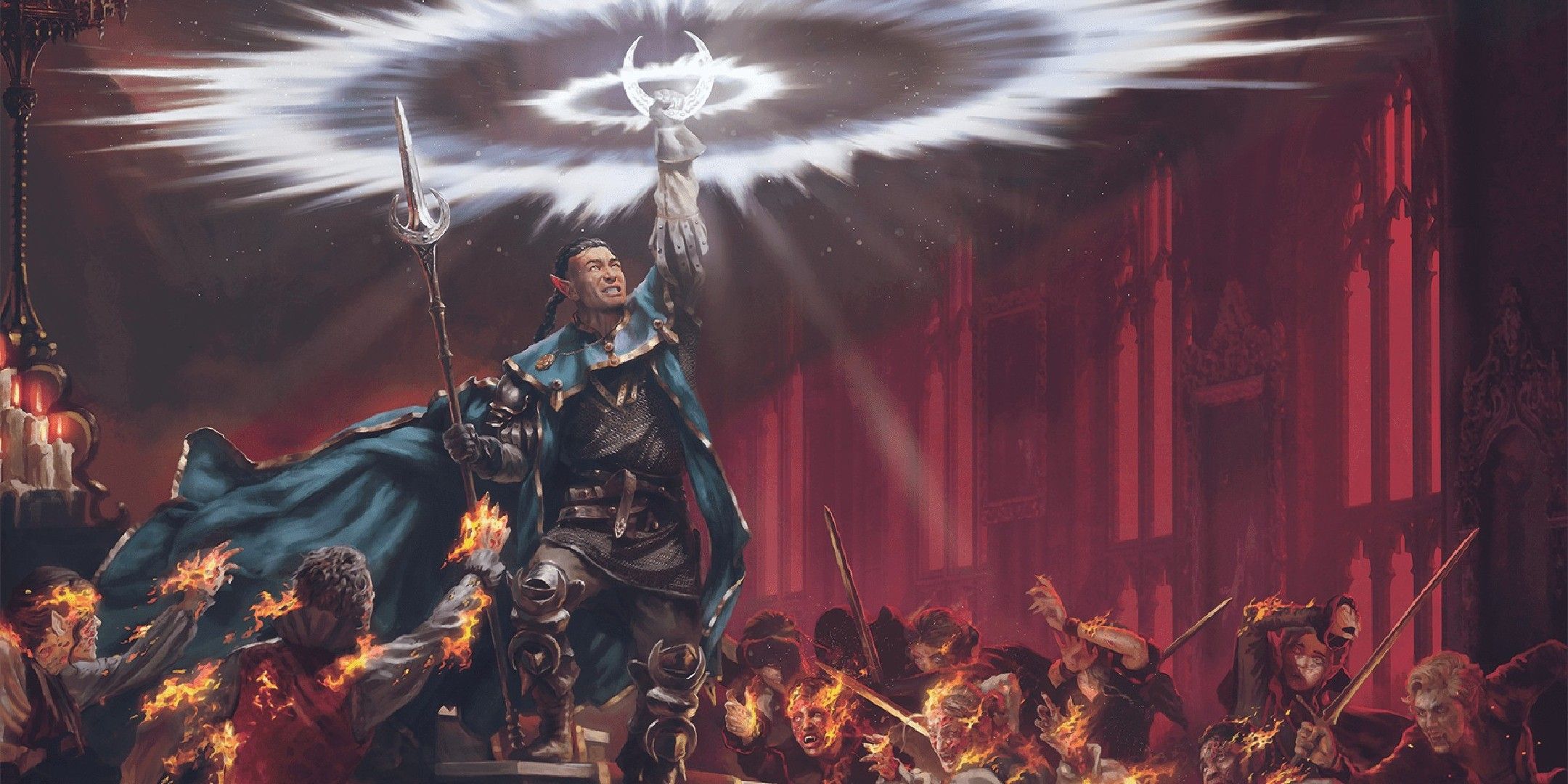
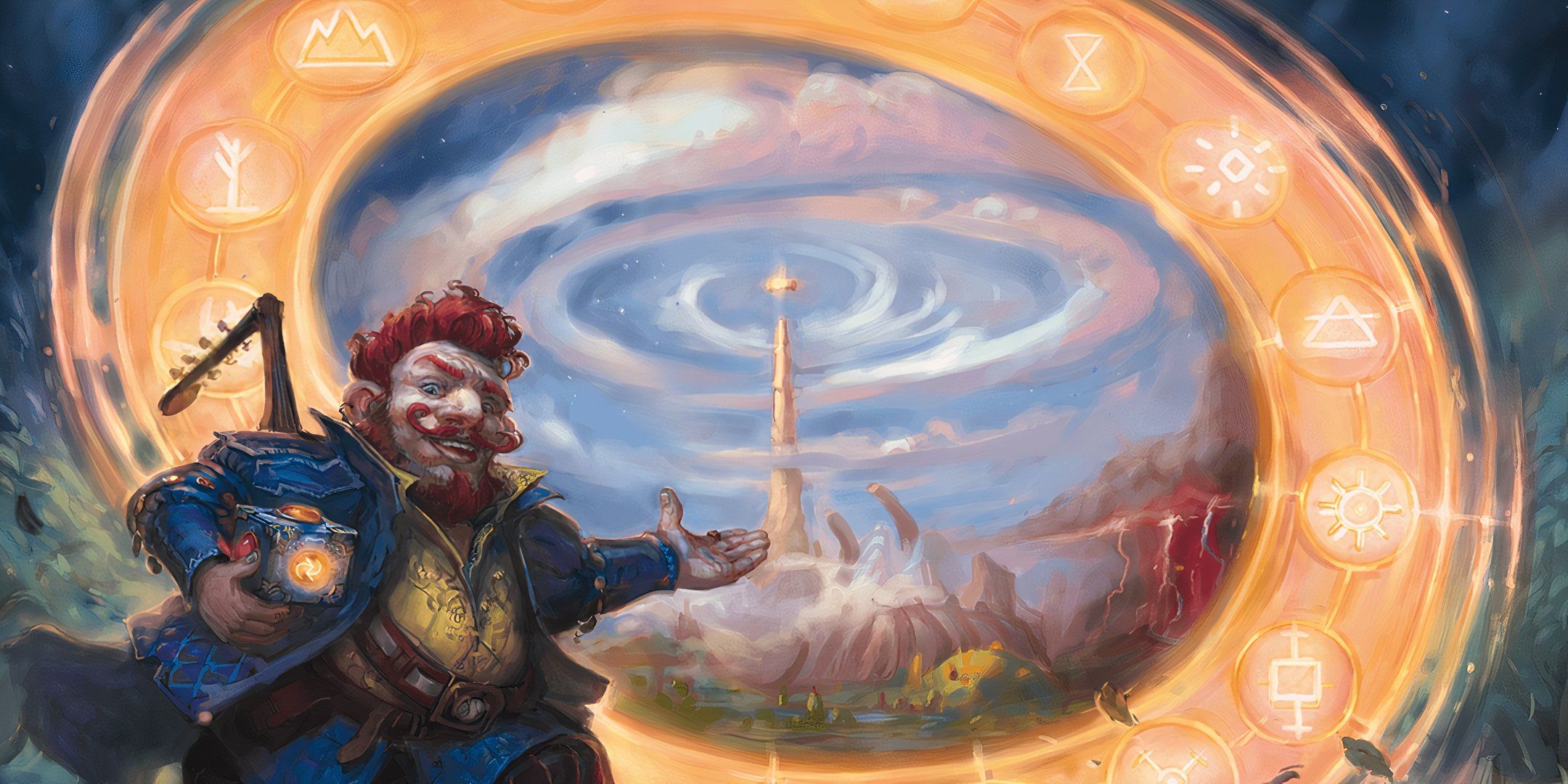
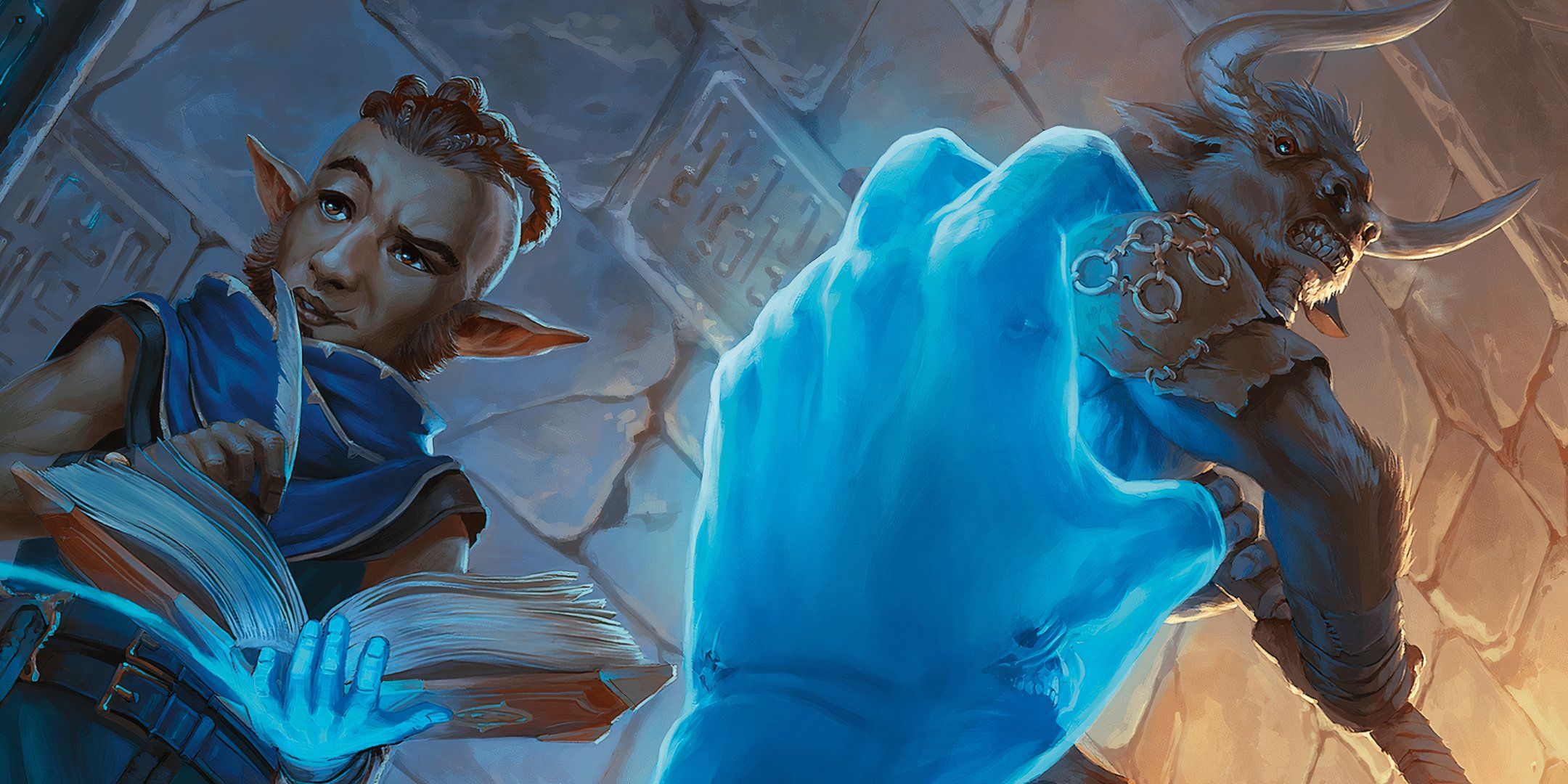
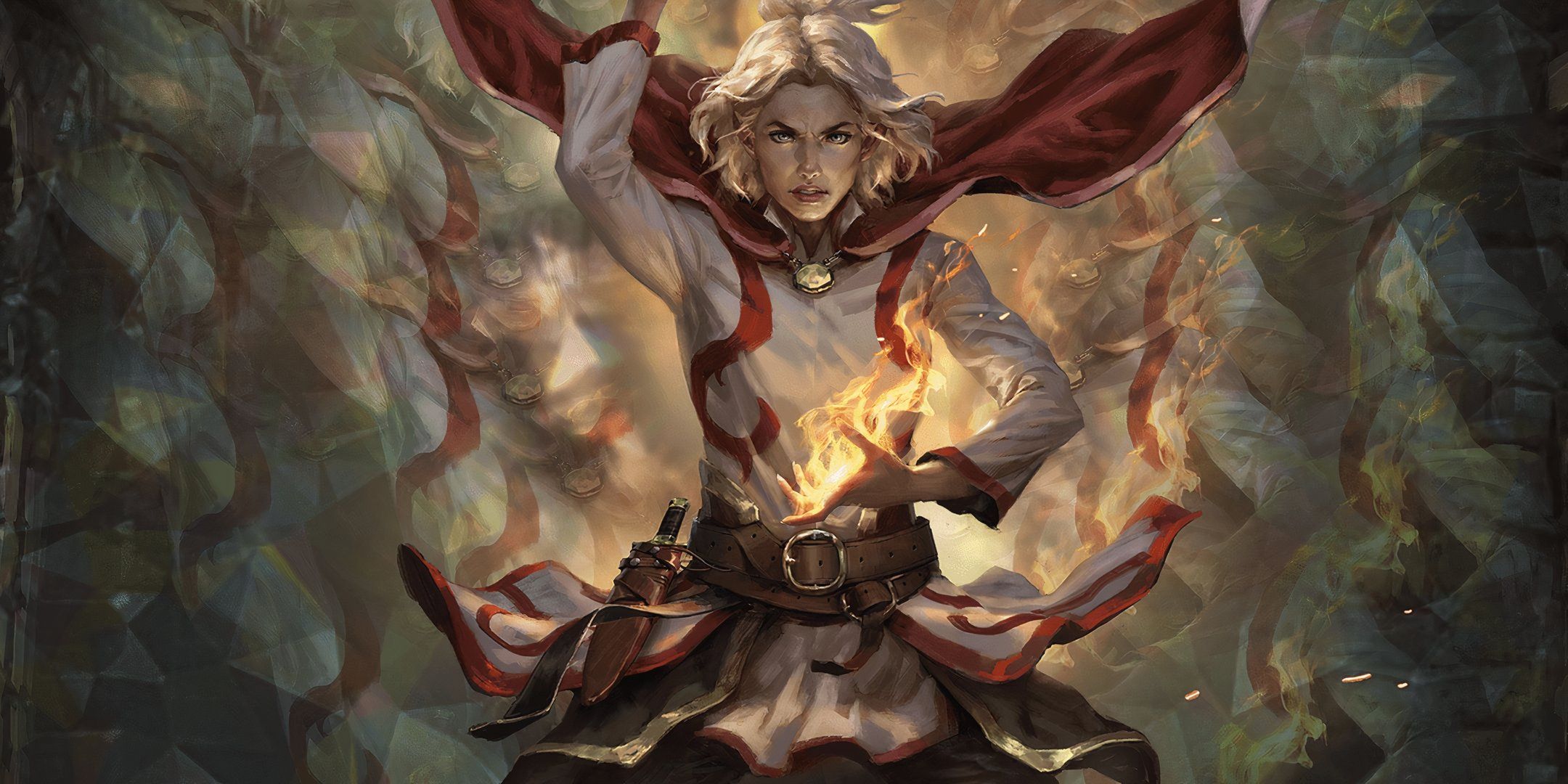





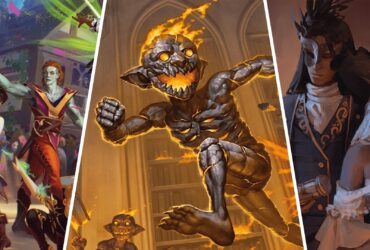
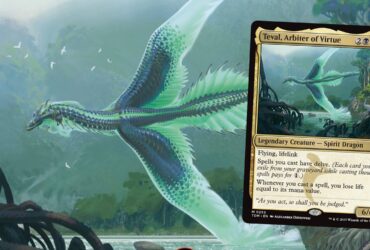
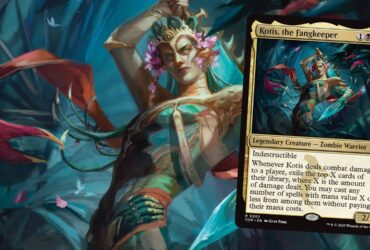

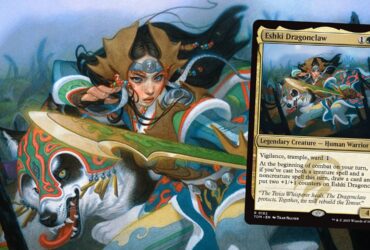
Leave a Reply